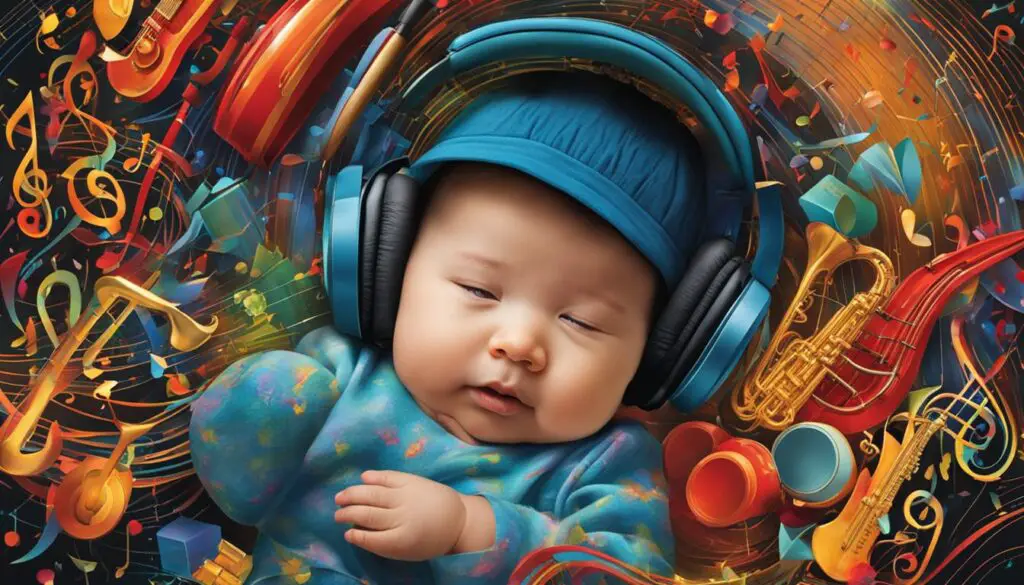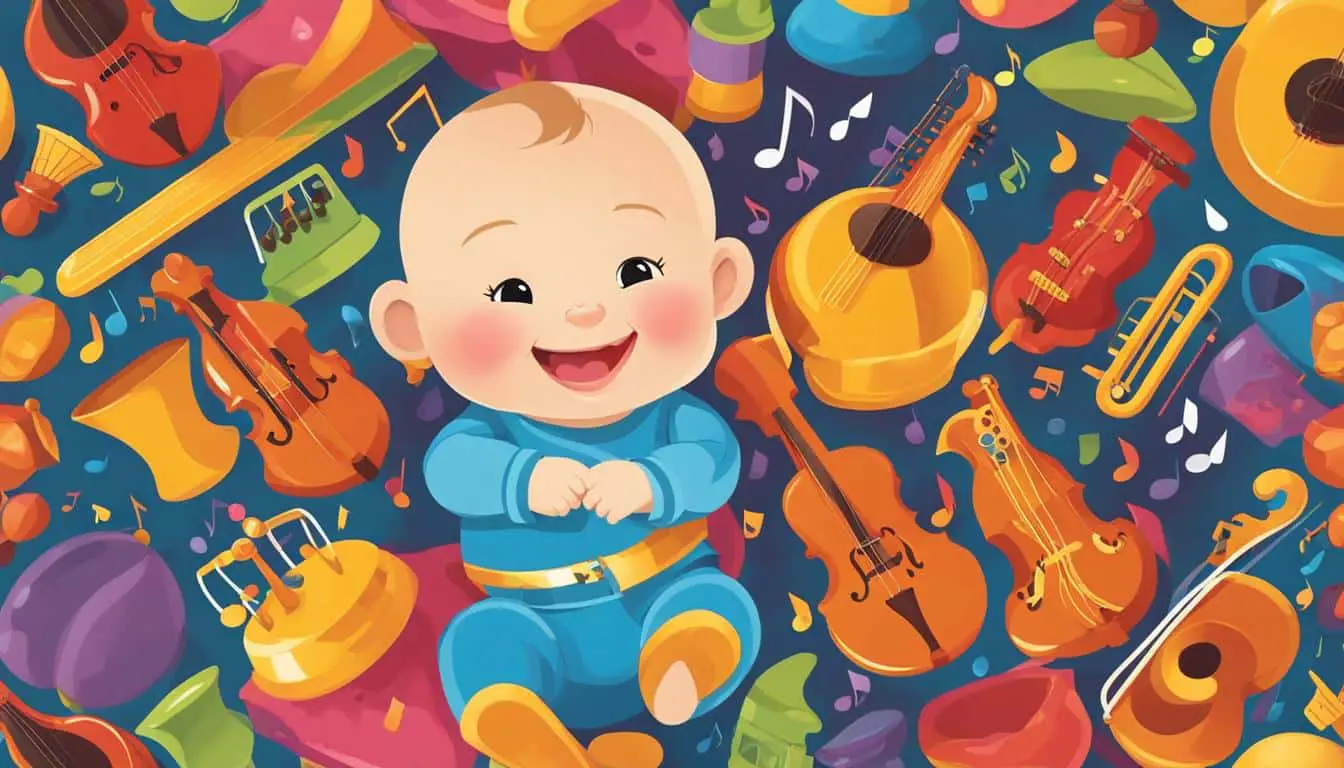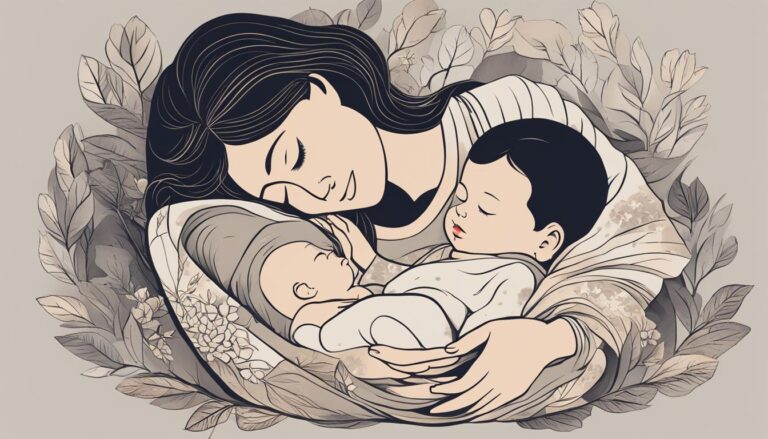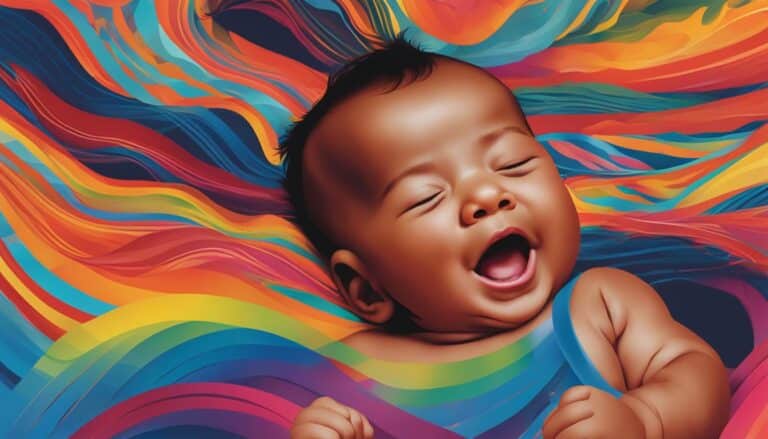The Role of Music in Baby’s Development
Music plays a crucial role in the development of babies, impacting various aspects of their cognitive skills, emotional well-being, language acquisition, and brain development. From the earliest stages of life, music has a profound influence on babies’ growth and development.
Research has shown that the process of learning a language and learning the fundamentals of music are remarkably similar. Babies instinctively tune into the voices of their parents, even before comprehending words. At this stage, conversations are patterns of rhythms and sounds that convey emotional meaning.
Exposing babies to music can accelerate the language learning process and help them grasp complex language concepts more quickly. In fact, a study conducted at the University of Washington discovered that exposure to music enhances pattern recognition and the ability to predict rhythm patterns in babies’ brains. Musical training goes a step further, developing the same areas of the brain needed for language mastery.
Key Takeaways:
- Music enhances cognitive skills, emotional well-being, language acquisition, and brain development in babies.
- Learning a language and learning music share similar processes.
- Exposing babies to music accelerates language learning and enhances pattern recognition.
- Musical training develops the same brain areas required for language mastery.
- Music plays a vital role in the early stages of a baby’s development.
The Benefits of Music for Babies
Music has numerous benefits for babies’ brain development. Listening to music and playing music both produce changes in the brain and release endorphins, the “happiness hormone.” It can improve moods, reduce stress levels, and empower young children. Music has a positive impact on brain chemicals like dopamine and oxytocin, which encourage sharing, empathy, and trust. It boosts concentration skills and productivity, improves learning and grades, and develops spatial intelligence, which can lay the foundation for an interest in STEM fields.
Music also improves vocabulary and creativity. It can soothe babies and help them sleep by creating a calm atmosphere and slowing down the heartbeat. Lullabies, in particular, have been used for centuries to soothe infants. Playing musical instruments, even improvised ones, helps with fine motor skills and linguistic and mathematical precision. Music also plays a significant role in socialization, as it helps children express themselves, share feelings, and connect with others.

“Music enhances all areas of child development and skills for school readiness: intellectual, social, emotional, motor, language, and overall literacy. It helps the body and the mind work together. Exposing children to music during early development helps them learn the sounds and meanings of words. Dancing to music helps children build motor skills while allowing them to practice self-expression.” – Bright Horizons Early Education and Preschool
In summary, music has a wide range of benefits for babies. It stimulates brain development, enhances memory, cognitive skills, and concentration. It releases endorphins, improves language acquisition, reading skills, mathematical learning, and creativity. It aids in better sleep and contributes to socialization by allowing babies to connect with others and express themselves. Integrating music into a baby’s life from an early age can have long-lasting positive effects on their overall development.
Conclusion
The role of music in baby’s development is unquestionable. From the earliest stages of life, babies are exposed to music, which has a profound impact on their cognitive skills, emotional well-being, and language acquisition. Research has shown that music not only stimulates brain development but also enhances pattern recognition and the ability to predict rhythm patterns.
In addition, musical training has been found to activate the same areas of the brain needed for language mastery, further emphasizing the close connection between music and language. Moreover, music has a positive influence on memory, concentration, and sleep, making it a valuable tool for early childhood development.
Furthermore, music plays a significant role in socialization, allowing babies to express themselves, share their feelings, and connect with others. Whether it’s through listening to music or playing musical instruments, the benefits are extensive and should be incorporated early on to maximize the potential of babies.
In summary, music serves as a powerful tool in nurturing a baby’s cognitive development, emotional well-being, language acquisition, and brain development. From improving memory and concentration to enhancing socialization skills and sleep patterns, music provides a rich and stimulating environment for babies to thrive in. It is essential to recognize the immense value of music in a baby’s early years and to incorporate it as an integral part of their developmental journey.
FAQ
How does music enhance babies’ cognitive skills?
Exposing babies to music and teaching them the basics of how music works can enhance their cognitive skills by developing pattern recognition, rhythm patterns, and the ability to predict patterns in their brains.
What are the benefits of music for babies?
Music has numerous benefits for babies, including improving moods, reducing stress levels, boosting concentration skills, improving learning and grades, developing spatial intelligence, improving vocabulary and creativity, soothing babies and helping them sleep, and aiding in fine motor skills development and socialization.
How does music contribute to babies’ brain development?
Music impacts various aspects of cognitive development, including memory, concentration, and language acquisition. It ignites all areas of child development and helps develop skills for school readiness, including reading skills and mathematical learning.
How does music affect babies’ emotional well-being?
Music releases endorphins, the “happiness hormone,” which improves emotional well-being, reduces stress levels, and improves sleep patterns. It also has a positive influence on brain chemicals like dopamine and oxytocin, which encourage sharing, empathy, and trust.
How does music contribute to babies’ socialization?
Music helps children express themselves, share their feelings, and connect with others. It plays a significant role in socialization by providing a means of communication and emotional expression.






